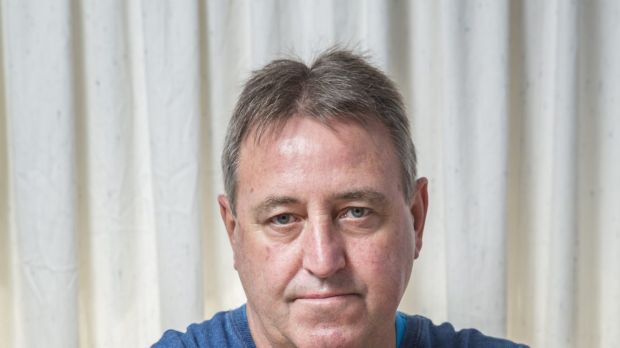A Canberra doctor has accepted for the first time he made a surgical mistake which harmed his patient.
But the Medical Board of Australia has decided to take no action against experienced surgeon John Hehir despite finding the death of Suzanne Smart in 2012 was the result of a “unique set of circumstances including Dr Hehir’s health, which directly affected his performance”.
 Stephen Smart is disappointed no disciplinary action has been taken against a Canberra surgeon after the death of his mother, Suzanne Smart, in 2012. Photo: Matt Bedford
Stephen Smart is disappointed no disciplinary action has been taken against a Canberra surgeon after the death of his mother, Suzanne Smart, in 2012. Photo: Matt Bedford
Two coroners confirmed in 2013, Mrs Smart, 75, died as a result of blood poisoning nearly four months after the perforation of her bowel during a surgery by Dr Hehir at Calvary Public Hospital.
A coroner’s findings said the doctor’s choice of surgical method was “clearly evidenced” but accepted expert reports which criticised the choice and said the later complications and death were the result of the procedure.
 A Canberra doctor failed to meet expected standards in his treatment of Suzanne Smart, pictured here in February 2011. Photo: Photo supplied.
A Canberra doctor failed to meet expected standards in his treatment of Suzanne Smart, pictured here in February 2011. Photo: Photo supplied.
Mrs Smart’s son, Stephen Smart, said the board’s findings, handed down to the family this month, were the first he had heard of any issues of Dr Hehir’s health affecting the surgery in May 2012.
“It was a real shock, he’s never mentioned anything about his health, or never even said he made a mistake,” he said.
“It’s only after they’ve grilled him that he’s acknowledging a mistake at all.”
The board found there was sufficient evidence to indicate Dr Hehir had acted “below reasonably expected standards” when performing the procedure.
There was no evidence he posed an ongoing risk to the public as he had put in place preventative measures so his health did not in future harm his conduct, the board said.
No description of the nature of the health issue was made in the findings.
Dr Hehir, in a letter to Calvary’s patient safety and quality unit in February 2013 about Mrs Smart’s care, said he had a heart attack about three months after the surgery – at a time when Mrs Smart was alive – but makes no reference to any earlier health issues.
The board noted Dr Hehir, a specialist in obstetrics and gynaecology, had indicated “that since 2014 he has decided not to perform any major surgeries”.
Mr Smart said he wanted a personal apology from the doctor which acknowledged his mistake, not just sorrow at the outcome.
He said he was disappointed Dr Hehir had not received even “a slap on the wrist” for his error.
“He can go and do a major surgery any time he likes as far as I can tell,” Mr Smart said.
Dr Hehir has no conditions imposed on his medical registration.
The board said Dr Hehir “accepts that he made an uncharacteristic mistake that had negative patient outcome to which he expressed remorse”.
A second doctor who provided later care to Mrs Smart was cleared by the board mid-last year.
There was no response from Dr Hehir when his office was contacted for comment.
Calvary Hospital was contacted but declined to comment.
